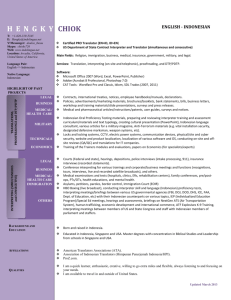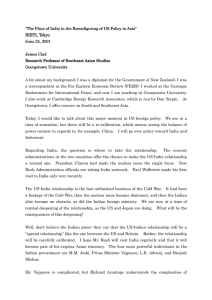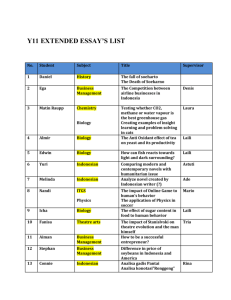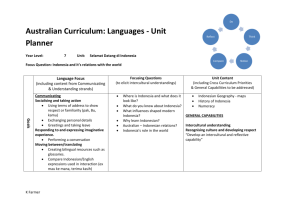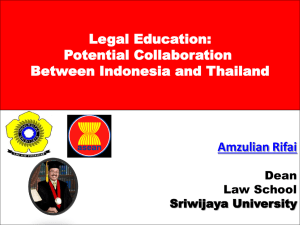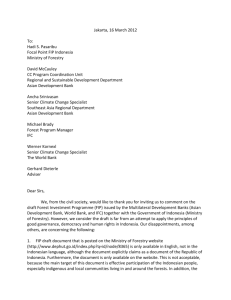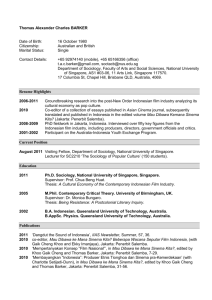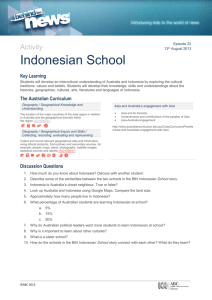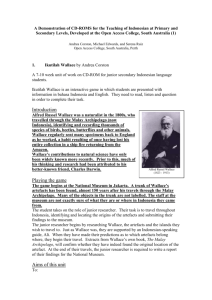the-australian-02-08-2012
advertisement
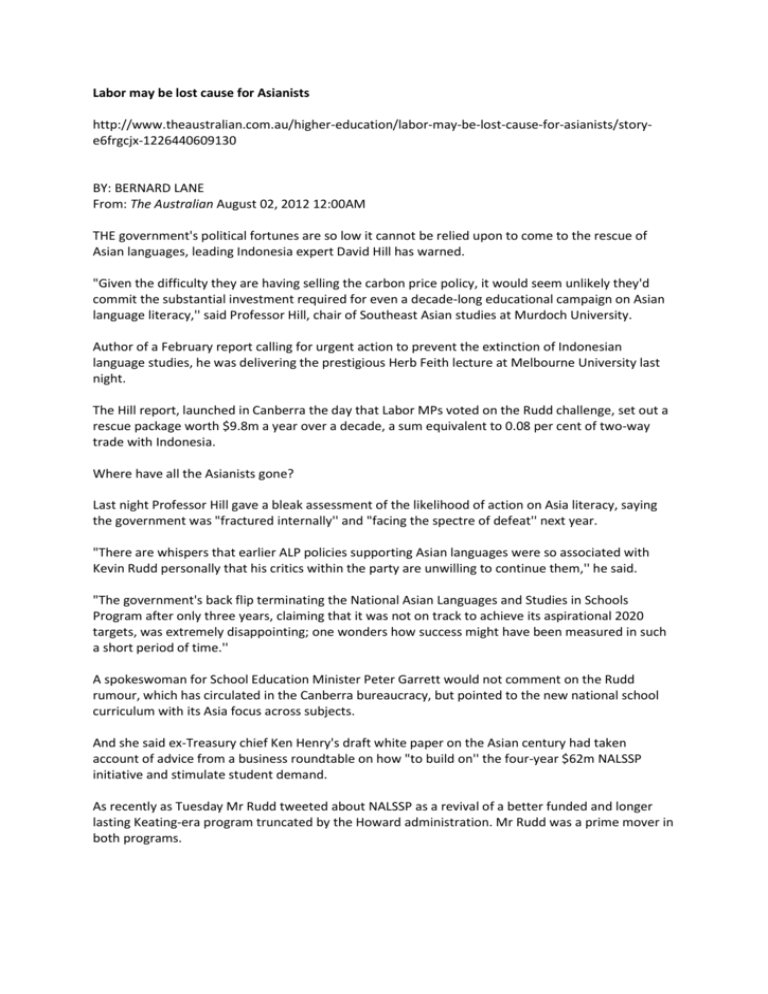
Labor may be lost cause for Asianists http://www.theaustralian.com.au/higher-education/labor-may-be-lost-cause-for-asianists/storye6frgcjx-1226440609130 BY: BERNARD LANE From: The Australian August 02, 2012 12:00AM THE government's political fortunes are so low it cannot be relied upon to come to the rescue of Asian languages, leading Indonesia expert David Hill has warned. "Given the difficulty they are having selling the carbon price policy, it would seem unlikely they'd commit the substantial investment required for even a decade-long educational campaign on Asian language literacy,'' said Professor Hill, chair of Southeast Asian studies at Murdoch University. Author of a February report calling for urgent action to prevent the extinction of Indonesian language studies, he was delivering the prestigious Herb Feith lecture at Melbourne University last night. The Hill report, launched in Canberra the day that Labor MPs voted on the Rudd challenge, set out a rescue package worth $9.8m a year over a decade, a sum equivalent to 0.08 per cent of two-way trade with Indonesia. Where have all the Asianists gone? Last night Professor Hill gave a bleak assessment of the likelihood of action on Asia literacy, saying the government was "fractured internally'' and "facing the spectre of defeat'' next year. "There are whispers that earlier ALP policies supporting Asian languages were so associated with Kevin Rudd personally that his critics within the party are unwilling to continue them,'' he said. "The government's back flip terminating the National Asian Languages and Studies in Schools Program after only three years, claiming that it was not on track to achieve its aspirational 2020 targets, was extremely disappointing; one wonders how success might have been measured in such a short period of time.'' A spokeswoman for School Education Minister Peter Garrett would not comment on the Rudd rumour, which has circulated in the Canberra bureaucracy, but pointed to the new national school curriculum with its Asia focus across subjects. And she said ex-Treasury chief Ken Henry's draft white paper on the Asian century had taken account of advice from a business roundtable on how "to build on'' the four-year $62m NALSSP initiative and stimulate student demand. As recently as Tuesday Mr Rudd tweeted about NALSSP as a revival of a better funded and longer lasting Keating-era program truncated by the Howard administration. Mr Rudd was a prime mover in both programs. In his Feith address, Professor Hill said that although all governments acknowledged the importance of relations with Jakarta, "Australians' willingness to learn the Indonesian language is a revealing barometer of the underlying health of this relationship''. His report showed a 37 per cent decline in Indonesian language students at university from 2001 to 2010, and a separate report found school enrolments had been falling by 10,000 a year since 2001. In the last two years there have been promising signs of a revival in student numbers at some universities, including Melbourne and the University of Western Australia. Professor Hill said Indonesia had three Cabinet members who had studied in Australia, while "no member of the Australian Parliament has ever studied in Indonesia, speaks Indonesian, or brings a similar depth of knowledge to the table''. He said it was "heartening'' that Opposition Leader Tony Abbott was promising a "reverse Colombo Plan'' to send thousands of young Australians to study in the region but any long-term strategy had to be bipartisan. "I dare not get my hopes up, but it would be wonderful if, when it considers the draft Henry report, the government committed funding both to Indonesian language education and to the pivotal role of in-country learning,'' he said. He noted that three ministers, including tertiary education minister Chris Evans, had visited students taking immersion programs in Indonesia since January. However, Senator Evans' office has implied that Indonesian studies must sink or swim in the new university funding system driven by student choice. "Universities will be able to increase the number of Commonwealth-supported bachelor level places they offer in particular disciplines, including Indonesian language, in response to employer and student demands,'' his spokesman said earlier this year. Last night Professor Hill quoted a colleague who had told him: "You have no chance of winning this. The future of Indonesian language will be driven by the market. "But whatever happens in individual universities, we must continue to get our students into Indonesia to study and support them in that. "It is there that the profound learning takes place.'' Professor Hill thought this too pessimistic, saying he could not "imagine that any thinking Australian government -- whether Labor or Liberal -- would ignore languages' centrality to our relationship with Indonesia, and Indonesia's centrality in our nation's future. "After the release of the Henry white paper, Indonesianists must be ready to mobilise community support, to generate the essential political will.''



